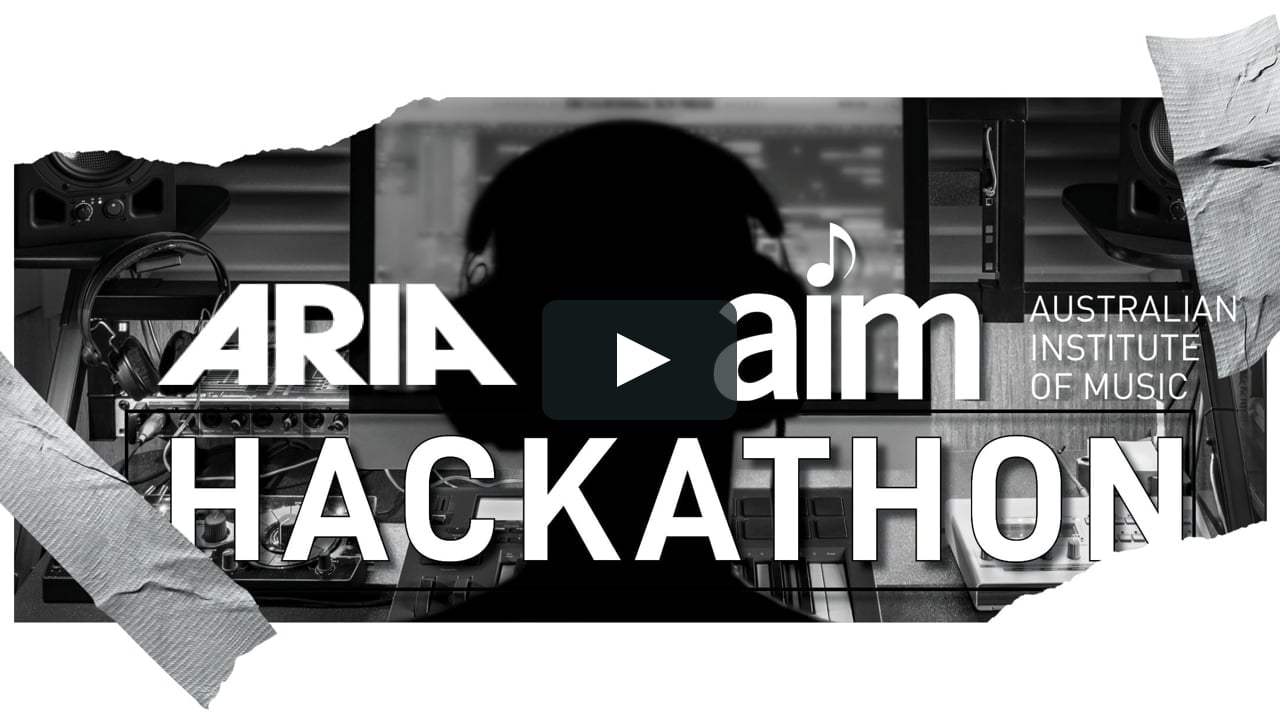Four Australian startups using music to deal with mental health

As part of ARIA Week, the Australian Institute of Music staged a Hackathon looking for innovative ideas that could change the music industry and offering $5,000 for the best one.
One quest was to find an app that would improve mental or physical well-being by using music. Four ideas made the final cut during Tuesday night’s event in Sydney.
LAVENDER
Approximately 5% of people in Australia have a panic attack at some stage, and 2.6% experience one over a 12—18 month period. There are songs which calm down the heart rate.
Lavender is a mobile app which measures heart rate with a metric wearable.
When someone is in a high state of anxiety, they open the app and tap Start My Session.
That connects them to Universal Music Group’s catalogue of 100,000 tracks, pre-selected from research which they believe offsets the symptoms of a panic attack.
While monitoring the heart rate, the platform assesses if the song being played is bringing it down.
If not, it will suggest another track.
Lavender overwhelmingly won the Hackathon’s $5,000, with the judges applauding the value of its impact, its design, and how it digitally offered the same age-old medical advice of “float through it and count to ten” to offset anxiety.
Lavender also won the people’s choice vote.
DROP.IT
The global population of those aged 60 has doubled since 1980, and will double again by 2050.
The infrastructure of how to deal with this is not following up as fast.
What we have are people who are socially isolated and lonely.
It is worsened by the widening of the generation gap.
The younger demos communicate with each other through social media and tech apps which older people find too complicated to use and hence left out of the loop.
Drop.it works on bringing grandparents and grandchildren together using a tool that Gen Z loves (creative, fast, fun, mobile).
The grandparent accesses a message from a grandchild in AR simply by pointing their smartphone at a marked photo or drawing of the kid on their wall.
The grandchild turns any music video into a 3D post in seconds via the app’s 3D creative tool, able to add various details by being as creative as they want.
The generations share the music video and have a singalong – all via the phone.
A CAPELLA MIXER
The idea of A Capella Mixer came from a retired woman whose treasured social connectivity was singing in the church choir.
That of course stopped during the pandemic.
Zoom meetings were unsatisfactory because the choir had to sing in unison, and it was hard to know when they were singing the correct notes, how to practise with other parts, and how to inspire and encourage each other during the tough times.
A Capella Mixer is like karaoke but offers singing in parts to create an ensemble.
Its business model starts at $2 a month where the user accesses the sheet of a favourite song.
It goes to $5 to practise in harmony using pre-recorded songs, and $10 to create a mixtape by combining different voices of choir members, or just double-tracking a solo performer.
There’s also a point system where participants are rewarded for the amount of times they share the mixtape with friends and family.
INVERSE
Inverse began as a reaction to how its musician inventor considered 2D content was at peak saturation and dominated by ‘pay for service’ rather than ‘pay for views’.
He opted for realtime virtual reality for music, performance art and events which captures the essence (and mental well being) of being out of the house and the live gig experience.
Inverse is Australia’s first made-for-VR broadcast venue in South Melbourne on its 8K live VR streaming platform.
In November it tried out the technology with 9 acts of different styles, and with 30 VR users in rotating test groups for user experience feedback and improvement.
Its advantages are that everyone has the best seat in the house, it bypasses problems that older or historic venues have in adapting to modern accessibility requirements and transcends the physical restrictions that some gig-goers have.
It is currently experimenting with 3D
Auslan avatars to accompany the viewer to a gig, and eventually, have the avatar personalised to the user’s needs.

































